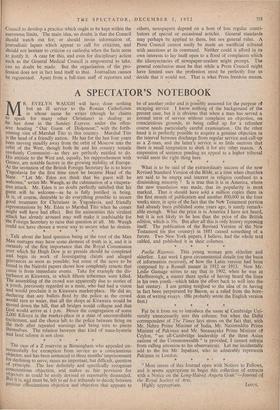The case of a Z reservist at Birmingham who appealed
un- suecessf ullY for exemption from service as a conscientious Objector , and has been sentenced to three months' imprisonment for declining to serve, raises an important, but difficult, question of principle. The law definitely and specifically recognises conscientious objection, and makes as fair provision for objectors as could be easily devised or reasonably demanded. But it is, ad must be, left to ad hoc tribunals to decide between genuine conscientious objection and objection that appears to be of another order and is possibly assumed for the purpose of escaping service. 1 know nothing of the background of the present case, but it is obvious that when a man has served a normal term of service without complaint an objection, on conscientious grounds, to being called up for a refresher course needs particularly careful examination. On the other hand it is perfectly possible to acquire a genuine objection in the interval between discharge from regular service and-call-up as a Z-man, and the latter's service is so little onerous that there is small temptation to shirk it for any other reason. A suspension of sentence pending an appeal to a higher tribunal would seem the right thing here. * *


















































 Previous page
Previous page